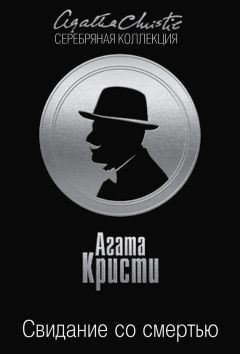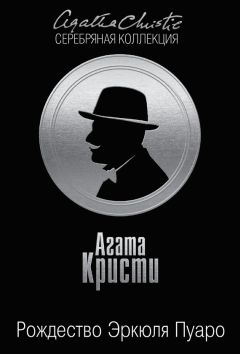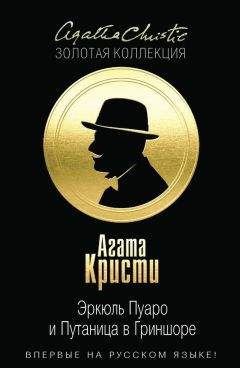Arthur Conan Doyle - Английский язык с Шерлоком Холмсом. Собака Баскервилей
The flush had faded in an instant, and a deathly face was before me. Her dry lips could not speak the "No" which I saw rather than heard.
"Surely your memory deceives you," said I. "I could even quote a passage of your letter. It ran, 'Please, please, as you are a gentleman, burn this letter, and be at the gate by ten o'clock.'"
I thought that she had fainted, but she recovered herself by a supreme effort.
"Is there no such thing as a gentleman?" she gasped.
"You do Sir Charles an injustice (вы несправедливы к сэру Чарльзу: «вы оказываете сэру Чарльзу несправедливость»). He did burn the letter (он действительно сжег письмо). But sometimes a letter may be legible (но иногда письма можно прочитать; legible — разборчивый) even when burned (даже если /они/ сожжены). You acknowledge now that you wrote it (теперь вы подтверждаете, что написали это)?"
"Yes, I did write it (да, я действительно написала это)," she cried, pouring out her soul in a torrent of words (воскликнула она, изливая душу в потоке слов). "I did write it. Why should I deny it (зачем мне это отрицать)? I have no reason to be ashamed of it (у меня нет причины стыдиться этого). I wished him to help me (я хотела, чтобы он мне помог). I believed that if I had an interview (я полагала, что если я /с ним/ встречусь) I could gain his help (то смогу получить от него помощь), so I asked him to meet me (поэтому я просила его о встрече со мной)."
"But why at such an hour (но почему в такое время)?"
"Because I had only just learned (потому что только перед тем узнала) that he was going to London next day (что на следующий день он едет в Лондон) and might be away for months (и может пробыть там месяцы). There were reasons why I could not get there earlier (были причины, почему я не могла прийти туда раньше)."
"But why a rendezvous in the garden (но почему свидание в парке) instead of a visit to the house (вместо визита в дом)?"
"Do you think a woman could go alone (вы полагаете, что женщина может прийти одна) at that hour to a bachelor's house (в такой час в дом холостяка)?"
"Well, what happened when you did get there (хорошо, что произошло, когда вы все же туда пришли)?"
"I never went (я никуда не ходила)."
"Mrs. Lyons!"
"No, I swear it to you on all I hold sacred (нет, клянусь вам всем, что для меня свято; to hold sacred — свято чтить). I never went. Something intervened to prevent my going (кое-что вмешалось = помешали некоторые обстоятельства, удержав меня от поездки)."
"What was that (что это было)?"
"That is a private matter (это личное дело). I cannot tell it (я не могу рассказать об этом)."
"You acknowledge, then (значит, вы подтверждаете), that you made an appointment with Sir Charles (что назначили свидание сэру Чарльзу) at the very hour and place at which he met his death (в то время и в /том/ месте, где он встретил свою смерть), but you deny that you kept the appointment (но отрицаете, что пришли на эту встречу; to keep — хранить; выполнять, осуществлять /что-либо/)?"
"That is the truth (это правда)."
rendezvous [ˈrɔndɪvu:], bachelor [ˈbætʃ(ǝ)lǝ], prevent [prɪˈvent]
"You do Sir Charles an injustice. He did burn the letter. But sometimes a letter may be legible even when burned. You acknowledge now that you wrote it?"
"Yes, I did write it," she cried, pouring out her soul in a torrent of words. "I did write it. Why should I deny it? I have no reason to be ashamed of it. I wished him to help me. I believed that if I had an interview I could gain his help, so I asked him to meet me."
"But why at such an hour?"
"Because I had only just learned that he was going to London next day and might be away for months. There were reasons why I could not get there earlier."
"But why a rendezvous in the garden instead of a visit to the house?"
"Do you think a woman could go alone at that hour to a bachelor's house?"
"Well, what happened when you did get there?"
"I never went."
"Mrs. Lyons!"
"No, I swear it to you on all I hold sacred. I never went. Something intervened to prevent my going."
"What was that?"
"That is a private matter. I cannot tell it."
"You acknowledge, then, that you made an appointment with Sir Charles at the very hour and place at which he met his death, but you deny that you kept the appointment?"
"That is the truth."
Again and again I cross-questioned her (снова и снова я задавал ей вопросы; to cross-question — подвергать перекрестному допросу), but I could never get past that point (но добиться ничего не мог: «не мог пройти дальше этого пункта/момента»; past — мимо).
"Mrs. Lyons," said I (миссис Лайонс, — сказал я), as I rose from this long and inconclusive interview (вставая /после/ этой долгой и безрезультатной беседы; to rise — вставать, подниматься), "you are taking a very great responsibility (вы принимаете на себя огромную ответственность) and putting yourself in a very false position (и ставите себя в очень опасное положение; false — неверный, неправильный) by not making an absolutely clean breast (не говоря всей правды; to make a clean breast — выложить все начистоту: «сделать чистую грудь») of all that you know (обо всем, что знаете). If I have to call in the aid of the police (если мне придется прибегнуть к помощи полиции: «позвать на помощь полицию») you will find how seriously you are compromised (вы поймете, насколько серьезно вы будете скомпрометированы). If your position is innocent (если вы невиновны; position — положение), why did you in the first instance deny (почему вы сначала: «в первом случае» отрицали) having written to Sir Charles upon that date (/что/ писали сэру Чарльзу в тот день)?"
"Because I feared (потому что боялась) that some false conclusion might be drawn from it (что из этого могут быть сделаны неверные выводы; to draw — рисовать; извлекать /выводы/), and that I might find myself involved in a scandal (и что я могу оказаться вовлеченной в скандальную историю)."
"And why were you so pressing (а почему вы так настаивали) that Sir Charles should destroy your letter (чтобы сэр Чарльз уничтожил ваше письмо)?"
"If you have read the letter you will know (если вы прочитали письмо, вы должны знать)."
"I did not say that I had read all the letter (я не сказал, что прочел все письмо)."
"You quoted some of it (вы кое-что процитировали из него)."
"I quoted the postscript (я процитировал только постскриптум). The letter had, as I said, been burned (письмо, как я сказал, было сожжено), and it was not all legible (и целиком его /нельзя/ было разобрать). I ask you once again (я снова вас спрашиваю) why it was that you were so pressing (почему вы так настаивали) that Sir Charles should destroy this letter (чтобы сэр Чарльз уничтожил это письмо) which he received on the day of his death (которое он получил в день своей смерти)."
"The matter is a very private one (это очень личный вопрос)."
interview [ˈɪntǝvju:], false [fɔ:ls], destroy [dɪsˈtrɔɪ]
Again and again I cross-questioned her, but I could never get past that point.
"Mrs. Lyons," said I, as I rose from this long and inconclusive interview, "you are taking a very great responsibility and putting yourself in a very false position by not making an absolutely clean breast of all that you know. If I have to call in the aid of the police you will find how seriously you are compromised. If your position is innocent, why did you in the first instance deny having written to Sir Charles upon that date?"
"Because I feared that some false conclusion might be drawn from it, and that I might find myself involved in a scandal."
"And why were you so pressing that Sir Charles should destroy your letter?"
"If you have read the letter you will know."
"I did not say that I had read all the letter."
"You quoted some of it."
"I quoted the postscript. The letter had, as I said, been burned, and it was not all legible. I ask you once again why it was that you were so pressing that Sir Charles should destroy this letter which he received on the day of his death."
"The matter is a very private one."
"The more reason (еще одна причина; more — в большей степени; добавочный, дополнительный) why you should avoid a public investigation (почему вам следует избегать публичного расследования)."
"I will tell you, then (тогда я расскажу вам). If you have heard anything of my unhappy history (если вы что-нибудь слышали о моей печальной истории) you will know (вы должны знать) that I made a rash marriage (что я необдуманно вышла замуж; rash — стремительный; поспешный; опрометчивый) and had reason to regret it (и имела основания сожалеть об этом)."
"I have heard so much (об этом я слышал: «я слышал /на/столько»)."
"My life has been one incessant persecution from a husband (моя жизнь — это непрерывные преследования со стороны мужа) whom I abhor (которого я ненавижу). The law is upon his side (закон на его стороне), and every day I am faced by the possibility (и каждый день я сталкиваюсь с возможностью) that he may force me to live with him (что он может принудить меня к жизни с ним). At the time that I wrote this letter to Sir Charles (в то время, когда я писала сэру Чарльзу) I had learned that there was a prospect of my regaining my freedom (я узнала, что есть возможность: «шанс» для меня получить свободу) if certain expenses could be met (если бы /я/ смогла собрать определенную сумму; to meet the expences — оплатить расходы). It meant everything to me (это значило для меня все; to mean) — peace of mind, happiness, self-respect — everything (душевное спокойствие, счастье, самоуважение — все). I knew Sir Charles's generosity (я знала о великодушии сэра Чарльза), and I thought that if he heard the story from my own lips (и подумала, что если он услышит /мою/ историю из моих уст: «губ») he would help me (он поможет мне)."
"Then how is it that you did not go (тогда почему же вы не пошли /на свидание/)?"
"Because I received help in the interval from another source (потому что в тот момент получила помощь из другого источника; interval — интервал, промежуток /времени/)."
"Why, then, did you not write to Sir Charles and explain this (почему же тогда вы не написали сэру Чарльзу и не объяснили этого)?"
"So I should have done (так я бы и сделала) had I not seen his death in the paper next morning (не попадись мне на следующее утро /заметка/ в газете о его смерти; to see — видеть; встретить /случайно/)."




